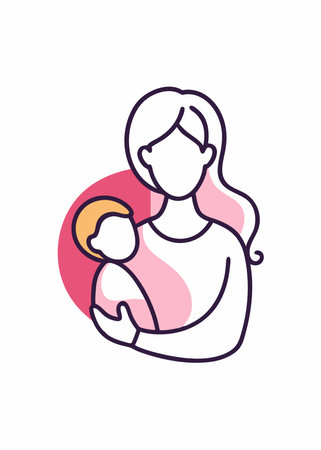Introduction to Midwifery in the UK
When I first began my journey into parenthood here in the UK, one of the very first professionals I encountered was a midwife. As a new parent, I was both excited and nervous, not entirely sure what to expect from the maternity care system. It quickly became clear that midwives play a central role throughout pregnancy, birth, and even the early days of newborn care. In the UK, midwives are highly trained professionals who provide personalised support, expert guidance, and reassurance at every stage. Their involvement is deeply woven into the fabric of British maternity care, whether you choose to give birth at home, in a birth centre, or in hospital. My own first impressions were shaped by their calm presence, wealth of knowledge, and genuine care for both mother and baby. Understanding the different settings where midwives work helped me appreciate just how vital they are—not only as medical professionals but also as advocates for women’s choices and well-being during one of life’s most transformative experiences.
2. Birth Centres (Midwife-Led Units): A Homely Touch
If you’re considering where to give birth in the UK, birth centres—also known as midwife-led units—offer a unique, homely alternative to traditional hospital labour wards. There are two main types: stand-alone birth centres, which are separate from hospitals, and alongside units, which are situated within or next to a hospital. Both settings are designed for those with low-risk pregnancies who wish to have a natural, low-intervention birth experience. As a new parent myself, I was drawn to the calm and welcoming environment these centres provide, and I found that the role of midwives here is truly special.
Midwives in these settings focus on supporting your body’s natural ability to give birth. They encourage mobility, different birthing positions, and the use of water for pain relief if you choose it. The atmosphere is more relaxed than a typical hospital ward—think soft lighting, birthing pools, and less medical equipment in sight. This helps many parents feel more at ease and in control during labour.
How Midwives Support Parents in Birth Centres
| Support Provided | Details |
|---|---|
| Emotional Support | Continuous reassurance and presence throughout labour |
| Pain Management | Natural methods like water immersion, massage, breathing techniques; no epidurals available |
| Physical Guidance | Encouraging movement and comfortable birthing positions; hands-on help as needed |
| Partner Involvement | Including birth partners in care plans and decision-making |
| Postnatal Care | Immediate skin-to-skin contact, breastfeeding support, and early bonding encouragement |
If complications arise or if you need interventions not available at the birth centre (like epidurals or surgical procedures), midwives will coordinate a safe transfer to the nearest hospital. This is usually done smoothly and efficiently thanks to well-established protocols.
What Parents Can Expect in a Midwife-Led Unit
- A calm, home-like setting with private rooms
- Caring midwives focused on your preferences and comfort
- No routine use of interventions such as continuous fetal monitoring or intravenous drips unless necessary
- The chance to have an active say in your birth plan and environment—some centres even allow you to bring your own music or aromatherapy oils!
- A greater likelihood of going home within hours of giving birth if all is well with you and your baby
Choosing a midwife-led unit means embracing a supportive approach that values natural birth while still keeping safety at the forefront. For me, knowing my midwife was right by my side, championing my choices and calmly guiding us through every stage, made all the difference in our positive birthing experience.

3. Hospital Labour Wards: Wise Guidance in a Clinical Setting
When it comes to giving birth in NHS hospital labour wards, midwives play an absolutely vital role. As someone who moved to the UK and experienced the NHS system for the first time, I was struck by how central midwives are throughout the whole hospital birth process. They are often the familiar faces you see from the moment you arrive at triage, through active labour, and even after your baby is born. In these clinical settings, midwives are responsible for monitoring both mum and baby’s wellbeing, offering pain relief options, and providing that much-needed emotional reassurance during what can be an overwhelming time.
One aspect that truly stands out in UK hospital births is the collaborative approach between midwives and obstetricians. Midwives lead the care for most straightforward births, but should anything become more complicated, they quickly call on the expertise of obstetricians—medical doctors specialising in childbirth. There’s a real sense of teamwork; decisions are explained clearly, and both professionals work together to ensure safety for both mother and child. For a newcomer like me, this gave great peace of mind—I never felt alone or unsupported.
Reflecting on my own experience as a new parent in a British hospital, I appreciated the gentle wisdom and calm confidence of my midwife. She explained each step, advocated for my wishes where possible (even when I wasn’t sure how to express them), and seemed to instinctively know when to offer encouragement or simply let me have quiet moments with my partner. The blend of medical expertise and heartfelt support made all the difference during those intense hours. For anyone unfamiliar with the UK system, it’s truly reassuring to know that midwives in hospital wards are not just skilled clinicians but also caring guides who help you navigate every twist and turn of your birthing journey.
4. Home Births: Bringing Expertise to Your Doorstep
Choosing a home birth in the UK is becoming increasingly popular, especially for those seeking a more personalised and comfortable birthing experience. As a new mum myself, I remember how reassuring it was to know that midwives could bring their professional care right into my living room. UK midwives play a crucial role in making home births both safe and empowering for families.
Midwives are highly trained in assessing whether a home birth is suitable for you, considering your health history, pregnancy progression, and any potential risks. They come equipped with medical essentials such as oxygen, resuscitation equipment for both mum and baby, and monitoring tools. This level of preparedness means you’re not missing out on safety just because you’re at home.
The support provided by midwives during a home birth goes far beyond medical checks. They help set up the birthing space, offering advice on lighting, comfort measures like birthing pools, and techniques to manage pain naturally. Many mums find that having their partner or family members present helps them feel calm and supported—a feeling midwives fully encourage and facilitate.
| Support Provided | How It Helps During Home Birth |
|---|---|
| Continuous monitoring of mum and baby’s wellbeing | Ensures early detection of any complications |
| Emotional reassurance and encouragement | Reduces anxiety and builds confidence throughout labour |
| Guidance on pain relief options (e.g., TENS machines, water birth) | Helps tailor the experience to personal preferences |
| Postnatal support (breastfeeding help, newborn checks) | Smooth transition into parenthood within your own home |
Welcoming a midwife into your private space can feel quite intimate at first. Personally, I found it comforting—midwives in the UK are known for their warmth and respect for your privacy. They’re guests in your home but also trusted professionals who empower you to be at the centre of your birth experience. With their expert guidance, many families feel that giving birth at home is not only possible but truly special.
5. Continuity of Care: Building Trust and Confidence
One of the most valued aspects of midwifery care in the UK is the emphasis on continuity of care, especially for new parents who may feel anxious or uncertain about the journey ahead. From my own experience as a first-time mum, having a consistent midwife or small team throughout pregnancy, birth, and the early postnatal period made an incredible difference. In many NHS trusts and birth centres, continuity schemes are becoming increasingly popular, where you see the same familiar faces at each check-up and during your babys arrival. This ongoing relationship allows midwives to really get to know you, your preferences, and any concerns you might have.
For first-time parents, these established relationships help build trust—something that’s absolutely vital when navigating all the unknowns of labour and parenthood. When I had questions about what to expect during labour or how to manage those sleepless first nights, it was so reassuring to reach out to someone who already understood my situation. Midwives in the UK are trained not only in clinical skills but also in supporting emotional wellbeing. They’re there to answer questions, calm nerves, and provide honest advice tailored to your unique circumstances.
This continuity is especially important across different birthing settings. Whether you choose a hospital, midwife-led unit, or a home birth, knowing your midwife means you’re more likely to communicate openly about your hopes and worries. For me, this meant feeling empowered to make informed choices about pain relief and birthing positions because my midwife listened without judgement and always respected my decisions. It’s this kind of support that boosts confidence for first-time parents across the UK—and it’s a key reason why so many families look back on their birthing experience with gratitude for their midwifery team.
6. Choice and Cultural Sensitivity in UK Midwifery
One of the things I truly appreciated during my own journey as a new mum in the UK was how midwives respected my background and genuinely listened to what mattered most to our family. In the UK, midwives play a key role not only in providing medical support but also in recognising and valuing the diverse cultures and beliefs of the families they care for. Whether you’re having your baby at home, in a birth centre, or on a hospital labour ward, midwives are trained to support your individual choices with empathy and understanding.
For many families—mine included—certain traditions or cultural practices around birth are really important. Midwives here often start by asking about these preferences early on, making sure your wishes are recorded in your birth plan. For example, some mums may want female-only staff present for religious reasons, or there might be particular rituals that are meaningful after baby is born. The midwifery teams I met were always open to these discussions and encouraged us to share our thoughts without judgement.
Informed choice is another cornerstone of UK midwifery care. Midwives provide clear information about different birthing settings, pain relief options, and postnatal care, all while considering any cultural needs or sensitivities you may have. They’ll help you weigh up what’s best for you and your baby, making sure decisions are made together—never just handed down from above.
This approach not only helps families feel safe and respected but also builds trust between parents and midwives. I remember how reassured I felt knowing that my values would be honoured, even if things didn’t go exactly as planned during birth. It’s this blend of professional knowledge and cultural sensitivity that makes midwifery care in the UK truly special for so many new parents from all walks of life.
7. Conclusion: Reflections on Midwives’ Impact
Looking back on my own journey as a new parent in the UK, I am filled with immense gratitude for the midwives who supported me every step of the way. Whether it was at the hospital, during my antenatal check-ups at the local surgery, or even when we considered a home birth, midwives were always there with their expertise and gentle reassurance. Their role goes far beyond just medical support; they are emotional anchors and advocates for families navigating one of life’s most profound moments. Each birthing setting—be it an NHS hospital, a birth centre, or your own living room—brings its unique atmosphere and set of choices, but what remains constant is the dedication and professionalism of UK midwives. They adapt seamlessly to different environments, listen without judgement, and empower us to make informed decisions that feel right for our families. As a first-time mum, their calm presence made all the difference, helping to turn anxiety into confidence. If there’s one thing I’ve learned, it’s that midwives truly are at the heart of safe and positive birth experiences across the UK. Thank you to all the incredible midwives who guide us through these life-changing moments—you are deeply appreciated.


